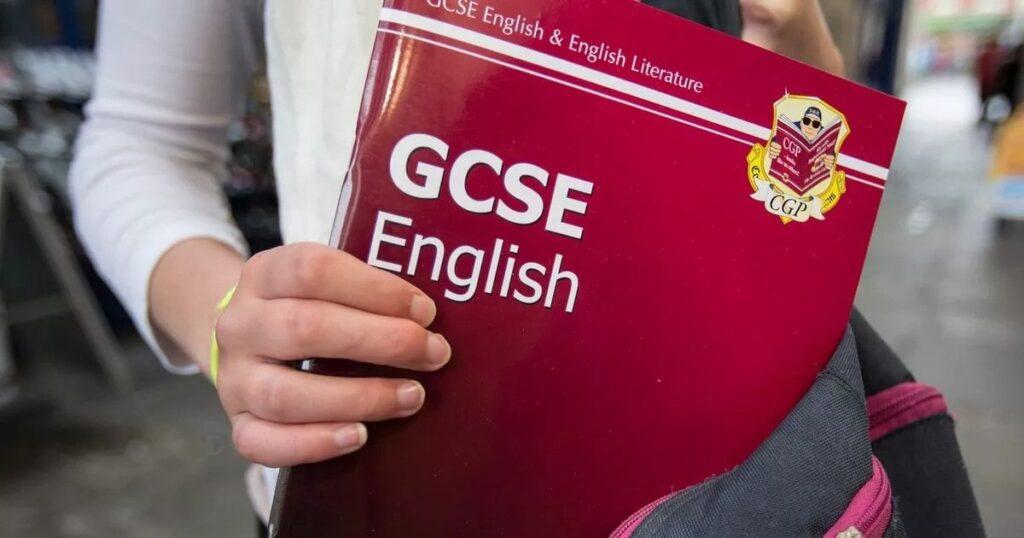Introduction
Choosing the right academic path can be a daunting task for students and parents alike. Imagine a student named Aisha, torn between the International General Certificate of Secondary Education (IGCSE) and the General Certificate of Secondary Education (GCSE). She’s unsure which path will best suit her ambitions, whether to study abroad or continue her education within the UK. This scenario is all too familiar for many students around the world. In this article, we will demystify the complexities of IGCSE and GCSE, providing a detailed comparison to help students like Aisha make an informed decision that aligns with their future goals.
The IGCSE and GCSE are both prominent secondary school qualifications designed to prepare students for further education and career opportunities. However, each has distinct characteristics and purposes. The IGCSE, offered by Cambridge Assessment International Education and other boards, is internationally recognized and widely accepted by universities globally. The GCSE, on the other hand, is the standard qualification for students in England, Wales, and Northern Ireland, closely aligned with the UK national curriculum. This article aims to provide an in-depth comparison of IGCSE and GCSE, covering various aspects such as curriculum focus, assessment methods, and target audiences, ultimately empowering students to make well-informed educational choices.
Table of Contents
1. What are IGCSEs and GCSEs?
IGCSE
The International General Certificate of Secondary Education (IGCSE), a globally recognized qualification, is typically pursued by students aged 14 to 16. Offered primarily by Cambridge Assessment International Education, it is popular in international schools and is respected by universities worldwide. The IGCSE curriculum is designed to develop theoretical understanding and problem-solving skills, preparing students for further education and global career opportunities.
GCSE
Primarily taken by students aged 14 to 16 in England, Wales, and Northern Ireland, the General Certificate of Secondary Education (GCSE) is a key qualification. It serves as a foundation for further education, whether in A-levels, vocational training, or other post-secondary pathways. The GCSE is closely tied to the UK national curriculum, ensuring that students gain comprehensive knowledge in core subjects while also offering flexibility in elective choices.

2. Key Differences Between IGCSE and GCSE
Curriculum Focus
IGCSEs
IGCSEs emphasize theoretical understanding and the development of problem-solving skills. The curriculum is designed to cater to a diverse range of students, accommodating different learning styles and preferences. For example, the Cambridge IGCSE offers a variety of subject options, including languages, sciences, humanities, and technical subjects, allowing students to tailor their education to their interests and strengths. This flexibility is particularly beneficial for students who plan to pursue higher education or careers internationally, as it provides a solid academic foundation across various disciplines.
GCSEs
The GCSE curriculum, aligned with the UK national curriculum, strikes a balance between theoretical knowledge and practical application. It includes a mix of core subjects like Mathematics, English, and Science, along with elective subjects such as Art, Music, and Physical Education. This combination ensures that students receive a well-rounded education while also having the opportunity to specialize in areas of interest. Additionally, GCSEs often incorporate coursework and practical assessments, which can help students develop a more hands-on understanding of the material.
Assessment
IGCSEs
IGCSE assessments are typically conducted twice a year, in May/June and October/November, providing students with multiple opportunities to sit for exams. The assessment formats vary, with some subjects offering traditional written exams, while others may include coursework projects or practical assessments. This variety allows students to demonstrate their knowledge and skills in different ways, catering to individual strengths and learning styles.
GCSEs
GCSE assessments are usually held once a year, in May/June. The primary mode of assessment is through traditional written exams, though some subjects may include coursework or practical components. This standardized approach ensures consistency and fairness in the evaluation process, helping to maintain the credibility and recognition of the qualification.
Target Audience and Future Pathways
IGCSEs
IGCSEs are ideal for students aiming for international study or careers. The qualification is recognized by universities worldwide, making it a suitable choice for those planning to pursue higher education abroad. Additionally, the flexibility of the IGCSE curriculum allows students to explore different subjects and interests, providing a broad foundation for future academic and career choices. For students uncertain about their specific career paths, IGCSEs offer a versatile and comprehensive education that keeps multiple options open.
GCSEs
GCSEs are well-suited for students planning to continue their education within the UK. The qualification is a prerequisite for A-levels and other post-16 education pathways, making it an essential step for those aiming to attend UK universities or pursue vocational training. While GCSEs are highly regarded within the UK, their recognition abroad may be more limited compared to IGCSEs. However, for students with clear aspirations to study and work in the UK, GCSEs provide a solid and relevant foundation.
3. Choosing Between IGCSE and GCSE
Choosing between IGCSE and GCSE depends on various factors, including academic goals, career aspirations, and personal preferences. To aid in decision-making, the following table summarizes the key aspects of each qualification:
| Feature | IGCSE | GCSE |
| Focus | Theoretical understanding, problem-solving skills | Balanced: Theoretical knowledge & Practical application |
| Curriculum | Designed for a global audience, may vary slightly by exam board | Aligned with UK national Curriculum |
| Assessment | Twice a year (May/June, Oct/Nov) | Once a year (May/June) |
| Assessment Format | mat Exams, coursework, practical assessments (varies by subject) | Mostly exams, some coursework/practical components |
| Target Audience | Students aiming for international study/careers | Students planning to continue education within the UK |
| Future Pathways | Recognized by universities worldwide | Prerequisite for A-levels and other UK post-16 pathways |
| Flexibility | High (variety of subjects and assessments) | Moderate (aligned with UK curriculum) |
| Recognition | Global recognition by universities | Primarily recognized within the UK |
Detailed Guidance
Beyond the table, let’s delve deeper into scenarios that illustrate when each qualification might be a better fit. For instance, if a student, like Aisha, dreams of studying at an international university, the IGCSE’s global recognition and diverse subject offerings make it an excellent choice. On the other hand, for a student aiming to pursue a career in medicine within the UK, the GCSE’s alignment with the national curriculum and its role as a stepping stone to A-levels make it more suitable.
Real-World Examples
Educators and career advisors often highlight the benefits of each qualification. Sarah, a career advisor at an international school, notes, “IGCSEs prepare students for a globalized world, equipping them with critical thinking and problem-solving skills.” Meanwhile, John, a teacher at a UK secondary school, emphasizes, “GCSEs provide a robust foundation for further education in the UK, ensuring students are well-prepared for A-levels and beyond.”
Addressing Myths
There are several misconceptions about IGCSEs and GCSEs. One common myth is that IGCSEs are harder than GCSEs. In reality, both qualifications have rigorous standards, but their structures and emphases differ. Another misconception is that GCSEs are not valued internationally, but many universities recognize them, especially if supplemented with strong A-level results. By debunking these myths, we can provide a clearer understanding of each qualification’s true value.

Conclusion
In conclusion, both IGCSE and GCSE qualifications offer distinct advantages and cater to different educational and career aspirations. Understanding the key differences between IGCSE and GCSE is crucial for making an informed decision. By considering factors such as curriculum focus, assessment methods, and future pathways, students can choose the qualification that best aligns with their individual goals and needs. Empowered with this knowledge, students like Aisha can confidently navigate their educational journeys and pursue their dreams.
I hope this answers all your questions, if you have as us in the comment section, you can now read our article on best engineering universities in Pakistan.
Frequently Asked Questions
-
Is IGCSE accepted by universities in the UK?
Yes, IGCSEs are widely accepted by universities in the UK, particularly when paired with strong A-level results.
-
Can I take GCSE as an international student?
Yes, international students can take GCSEs, though it may require enrolling in a school that offers the qualification.
-
How do I choose between IGCSE and GCSE?
Consider your future education and career goals, preferred learning style, and the flexibility of each qualification. Use comparison tools and seek advice from educators.
-
What are the benefits of IGCSE over GCSE?
IGCSEs offer global recognition, a diverse curriculum, and flexible assessment methods, making them ideal for students with international aspirations.
-
Are GCSEs easier than IGCSEs?
Not necessarily. Both qualifications have rigorous standards, but their focus and assessment methods differ, catering to different student needs.
-
What subjects are best to take for IGCSE?
It depends on your interests and career goals. Popular subjects include Mathematics, Sciences, Languages, and Humanities.
